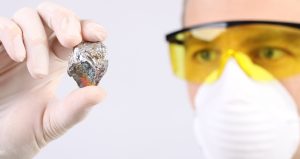the Tantalum-Niobium International Study Center (T.I.C.) : REACH (EU)
An international, non-profit association founded in 1974 under Belgian law.
- Read 787 Times
- Industries : ALL
REACH (EU)
For information only. Note that the T.I.C. is neither registered for REACH nor part of the consortia which registered tantalum or niobium.
REACH (Registration, Evaluation, Authorisation and Restriction of Chemicals) is a regulation of the European Union (EU) governing chemicals (including metals) that are supplied at ≥1 tonne per year in the EU.
 The goal is to improve the protection of human health and the environment from the risks that can be posed by chemicals, while enhancing the competitiveness of the EU chemicals industry. It also promotes alternative methods for the hazard assessment of substances in order to reduce the number of tests on animals. It became law in EU member countries on 1st June 2007.
The goal is to improve the protection of human health and the environment from the risks that can be posed by chemicals, while enhancing the competitiveness of the EU chemicals industry. It also promotes alternative methods for the hazard assessment of substances in order to reduce the number of tests on animals. It became law in EU member countries on 1st June 2007.
Any company manufacturing or importing into the EU a substance on its own, in a preparation (mixture of substances), or intentionally released from articles (finished manufactured goods) at or above 1 tonne per year may have to register it. This is done by submitting a dossier to the European Chemicals Agency (the Agency; ECHA), based in Helsinki, Finland. The dossier contains details of the substance’s properties, other relevant information about risks and how these risks can be managed. You will not be able to manufacture or import a substance within the EU, or import an article that intentionally releases a substance, unless the substance has been registered.
How does REACH work?
REACH establishes procedures for collecting and assessing information on the properties and hazards of substances. Companies need to register their substances and to do this they need to work together with other companies who are registering the same substance. ECHA receives and evaluates individual registrations for their compliance, and the EU Member States evaluate selected substances to clarify initial concerns for human health or for the environment. Authorities and ECHA’s scientific committees assess whether the risks of substances can be managed.
Authorities can ban hazardous substances if their risks are unmanageable. They can also decide to restrict a use or make it subject to a prior authorisation.
The passage of information up and down the supply chain is one of the key featuresof REACH – users should be able to understand what manufacturers and importers know about the dangers involved in using chemicals, and they can also pass information back up the supply chain. REACH adopts and builds on an existing system for passing information in a structured way down to chemicals users – the Safety Data Sheet (SDS). This should accompany materials down through the supply chain, providing the information that users need to ensure chemicals are safely managed. REACH will also allow for information on uses of chemicals to be passed back up the supply chain, so that these can be reflected in the SDS.
How to register for REACH
Companies are responsible for collecting information on the properties and uses of the substances they manufacture or import above one tonne a year. They also have to assess the hazards and potential risks presented by the substance. This information is communicated to ECHA through a registration dossier containing the hazard information and, where relevant, an assessment of the risks that the use of the substance may pose and how these risks should be controlled.
Registration applies to substances on their own, substances in mixtures and certain cases of substances in articles. Chemical substances that are already regulated by other legislations such as medicines, or radioactive substances are partially or completely exempted from REACH requirements.
Registration is based on the “one substance, one registration” principle. This means that manufacturers and importers of the same substance have to submit their registration jointly. The analytical and spectral information provided should be consistent and sufficient to confirm the substance identity.
For substance registration a fee is usually charged.
For further information please read the official ECHA guidance “How to apply for authorisation” or visit https://echa.europa.eu/regulations/reach/registration
- Read 787 Times
- Industries : ALL
- Author: Tantalum-Niobium International Study Center (T.I.C.)
- Published Date: 11/03/2025
- The T.I.C. was established in response to concerns within the tantalum industry regarding the lack of useful information on tantalum source materials. The initial purpose of the T.I.C. was to spread information about tantalum and to promote the common interest and welfare of the producers, especially with public and private authorities, organisations and agencies. Since its foundation, the T.I.C. has grown to encompass niobium and all stages of the tantalum/niobium supply chains.
Advancing sustainability, technology, and industry collaboration since 1974.
Driving Global Innovation in Tantalum and Niobium
Connecting global innovators in tantalum and niobium, driving advancements from raw materials to cutting-edge applications.
- Supporting over 90 members across 30 countries.
- Promoting cutting-edge research and development.
- Facilitating a global network of professionals.
